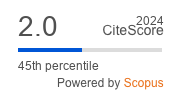Design for Multiplicity: Diving into the transdisciplinary nature of design processes
DOI:
https://doi.org/10.23726/cij.2023.1500Keywords:
Design, multiplicity, sustinable development goals, Design Factory Global Network Research conference, DFGN.R 2023Abstract
The contributions in this issue, selected from the ones presented at the DFGN.R 2023, a two-day event hosted at the METU Design Factory in Ankara, Turkey, and organized by the Design Factory Global Network, represent a broad cross-section encompassing various fields such as phenomenology, social theory, psychology, philosophy, artificial intelligence, and art, resonating with the principles of 21st Century learning and the United Nations’ Sustainable Development Goals, supporting the changing expectations of academics in producing alternative research outcomes in collaborative, practice-based research. These contributions offer valuable insights into how designers and innovators navigate the ever-expanding landscape of challenges and opportunities in multiple fields, elevating pedagogy and enhancing the art and science of learning, thinking, and doing.
References
Butt, M., Sharunova A., Storga M., Khan Y.I., Jawad Qureshi A., 2018, Transdisciplinary Engineering Design Education: Ontology for a Generic Product Design Process, Procedia CIRP, 28th CIRP Design Conference 2018, 23-25 May 2018, Nantes, France, 70: 338–43. https://doi.org/10.1016/j.procir.2018.02.019
Camburn, B., Viswanathan V., Linsey J., Anderson D., Jensen D., Crawford R., Otto K., Wood K., 2017, Design Prototyping Methods: State of the Art in Strategies, Techniques, and Guidelines, Design Science 3: e13. https://doi.org/10.1017/dsj.2017.10
Cocchi N., Dosi C., Vignoli M., 2023, Tech to Organization. Assessing and designing technology adoption with design thinking, CERN IdeaSquare Journal of Experimental Innovation, 7(3): 20-31. https://doi.org/10.23726/cij.2023.1478
Dorst, K., 2011, The core of ‘design thinking’ and its application, Design Studies, Interpreting Design Thinking, 32 (6): 521–32. https://doi.org/10.1016/j.destud.2011.07.006
Dosi, C., Mattarelli E., Vignoli M., 2020, Prototypes as identity markers: The double-edged role of prototypes in multidisciplinary innovation teams, Creativity and Innovation Management 29 (4): 648–66. https://doi.org/10.1111/caim.12410
Eriksson V., Keipi T., Björklund T., 2023, Identifying and framing potential stakeholders in complex innovation ecosystems. CERN IdeaSquare Journal of Experimental Innovation, 7(3): 8-13. https://doi.org/10.23726/cij.2023.1477
Fam, D., Clarke E., Freeth R., Derwort P., Klaniecki K., Kater-Wettstädt L., Juarez-Bourke S., et al., 2020, Interdisciplinary and Transdisciplinary Research and Practice: Balancing Expectations of the ‘Old’ Academy with the Future Model of Universities as ‘Problem Solvers’, Higher Education Quarterly 74 (1): 19–34. https://doi.org/10.1111/hequ.12225
Florio M., Castelnovo P., 2023, Quasi-experiments to estimate the economic impact of research infrastructure, CERN IdeaSquare Journal of Experimental Innovation, 7(3): 5-7. https://doi.org/10.23726/cij.2023.1492
Jussila J., Räty M., Siintoharju S-M., 2023, Developing students’ transversal skills: A case study of an international product development project, CERN IdeaSquare Journal of Experimental Innovation, 7(3): 32-37. https://doi.org/10.23726/cij.2023.1474
Kang, M., Choo P., Watters C.E., 2015, Design for Experiencing: Participatory Design Approach with Multidisciplinary Perspectives, Procedia - Social and Behavioral Sciences, International Conference on New Horizons in Education, INTE 2014, 25-27 June 2014, Paris, France, 174: 830–33. https://doi.org/10.1016/j.sbspro.2015.01.676
Kirjavainen S., Lahdenne S., Björklund T., 2023, Prototyping in practice – paths and partners for testing novel industrial products and service ideas, CERN IdeaSquare Journal of Experimental Innovation, 7(3): 14-19. https://doi.org/10.23726/cij.2023.1479
Kocsis, A., Gönenç Sorguç A., Krebs A., Iandoli L., Vignoli M., 2023. 2nd Design Factory Global Network Research Conference: Contributions for Designing Multiplicity, October 5th-6th 2023. Aalto University. https://aaltodoc.aalto.fi/handle/123456789/123732
Mobjörk, M., 2010, Consulting versus participatory transdisciplinarity: A refined classification of transdisciplinary research, Futures, Europe 2030: Territorial Scenarios, 42 (8): 866–73. https://doi.org/10.1016/j.futures.2010.03.003
Rosenbaum A., David Y., Krebs A., The use of generative AI tools in Design Thinking academic makeathon, CERN IdeaSquare Journal of Experimental Innovation, 7(3): 43-49. https://doi.org/10.23726/cij.2023.1470
Sharunova, A., Butt M., Kresta S., Carey J., Wyard-Scott L., Adeeb S., Blessing L., Qureshi A. J., 2017, Cognition and transdisciplinary design: an educational framework for undergraduate engineering design curriculum development, Proceedings of the Canadian Engineering Education Association (CEEA). https://doi.org/10.24908/pceea.v0i0.10353
Van der Marel F., 2023, How participatory design influences issue framing: a hospital case study, CERN IdeaSquare Journal of Experimental Innovation, 7(3): 38-42. https://doi.org/10.23726/cij.2023.1473
Vignoli, M., Dosi C., Balboni B., 2023, Design thinking mindset: scale development and validation, Studies in Higher Education 48 (6): 926–40. https://doi.org/10.1080/03075079.2023.2172566
Downloads
Published
How to Cite
Issue
Section
Categories
License
Copyright (c) 2023 Matteo Vignoli, Arzu Gönenç Sorguç, Luca Iandoli, Anita Kocsis, Assaf Krebs

This work is licensed under a Creative Commons Attribution 4.0 International License.
Authors who publish with this journal agree to the following terms:
- Authors retain copyright and grant the journal right of first publication with the work simultaneously licensed under a Creative Commons Attribution License that allows others to share the work with an acknowledgement of the work's authorship and initial publication in this journal.
- Authors are able to enter into separate, additional contractual arrangements for the non-exclusive distribution of the journal's published version of the work (e.g., post it to an institutional repository or publish it in a book), with an acknowledgement of its initial publication in this journal.
- Authors are permitted and encouraged to post their work online (e.g., in institutional repositories or on their website) prior to and during the submission process, as it can lead to productive exchanges, as well as earlier and greater citation of published work (See The Effect of Open Access).


